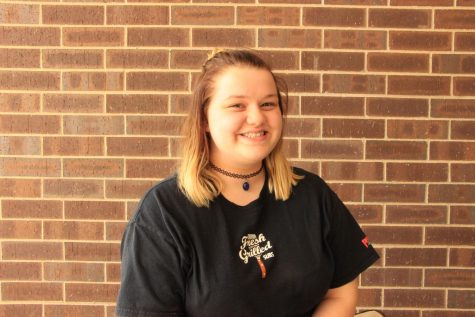broken home, broken people?
According to the American Psychology Association, 40 to 50 percent of marriages end in divorce. Divorce rates have skyrocketed in the past century, increasing from 1 to 5 people out of 1,000 getting divorced. When compared to the number of marriages per 1,000 people moving from 9 to 10 in that span of time, the results are astounding, according to washingtonpost.com. Despite a general societal consensus on the topic of divorce, sophomore Alyssa Bloom said divorce is not exactly how the media portrays it.
“I think the stereotypes are in place because of the way they’re portrayed in movies and TV,” Bloom said. “But it’s better for my parents this way, so I’m happy for them.”
Bloom said despite her parents’ divorce, the two are generally good friends. Though this is reality for her, it’s a dream for other students like junior Finny Bradin. She said one of the biggest causes of her parents’ divorce was fighting, which has only continued in their current interactions, Bradin said.
“They get along for a couple minutes, but then my mom will do something and my dad will make fun of her, or my dad says something and my mom will get upset,” Bradin said. “It can turn into a fight relatively quickly. Usually when a fight starts, one of them removes themself from the place to keep it from continuing.”
Bradin said she has grown up without a mother for the majority of her life. Despite living at her grandparents’ home with her father, she said she hasn’t seen much of him either due to work. Without constant supervision, Bradin said she had to figure out life by herself.
“Basically, I’ve had to teach myself to grow up because I never had a true mother or father figure in my life,” Bradin said. “I had to teach myself how to be an adult — how to take care of my younger siblings. I still take care of my younger siblings.”
However, divorce in the family is not always detrimental, freshman Harrison Powell said. Even though his mother lives in Overland Park and his father lives three hours away in Wichita, they both make an effort to see him frequently.
“Having divorced parents can be bad at times, but it’s not the horrible life-threatening event that will have a negative impact on your life,” Powell said. “In many ways, having divorced families has helped me develop as a person more than it hurts me.”
Much like Powell, Bloom said she has good and bad experiences with her family situation.
“Sometimes it’s kind of nice to have another house to go to if I don’t want to really be at my mom’s or vice versa,” Bloom said. “But it’s kind of sucky not to see my dad every day and I miss him a lot. When I was younger, it was really hard for me to talk about because most of my friends had parents who were together.”
The media, such as television and movies, all have several bad portrayals of divorce, Bradin said. She said she does not agree with the stereotype and is living proof that not all divorces are exactly like some shows say they are.
“I think [society] views divorce in a way that if your parents are not together, you’re automatically asking for trouble or you’re always trying to get into trouble,” Bradin said. “You’re the emo kid that constantly wants to die. It’s never seen as the kid of the divorce is a happy kid. They’re never seen as a normal, ordinary kid. Personally, I don’t agree with that stereotype because I’m a pretty cheery person compared to what the media says. My friends who experienced the same thing seem just as happy.”
Despite some stereotypes being untrue and hurtful, others are very accurate, Powell said. His parents’ divorce has shown a new light on the world that he said he wouldn’t have been able to see without going through the experience.
“The good things about my parents being divorced is that, first of all, they are happier than they were together,” Powell said. “Second, I get two sets of each holiday, one per household. Third, I get different perspectives on life … it’s interesting to have divorced parents, since you basically have two households instead of one. You also have two sets of siblings, which can be weird when you don’t see them a lot.”
Bradin said he has been able to relate with his friends who have divorced parents, and these people have helped him feel a little more normal in an area that has less than the national average ratio of divorced versus married parents. However, he said he wants other people to know how to treat him and others with difficult family situations.
“Kind of treat them with support, say you’re there for them,” Bradin said. “But don’t treat them differently; they just want to be a normal kid. They don’t want to be singled out because they have divorced parents.”
Despite Bradin being able to find a support net, Bloom said it has been hard for her to talk about it in the past due to a lack of friends with a similar situation. She said she promotes respectful conversation, which can be healthy and educational to both parties.
“I think students should just respect how people talk about it, and if they don’t want to talk about it, don’t make them,” Bloom said. “If people are going through it and want to talk about it, just listen and comfort them, because it really is a hard thing to have to deal with no matter how old you are.”
| emmaolinger

This is Olinger's second year on the Standard. She has absolutely loved being apart of the newspaper and has been since august, 2016. She won second place...

